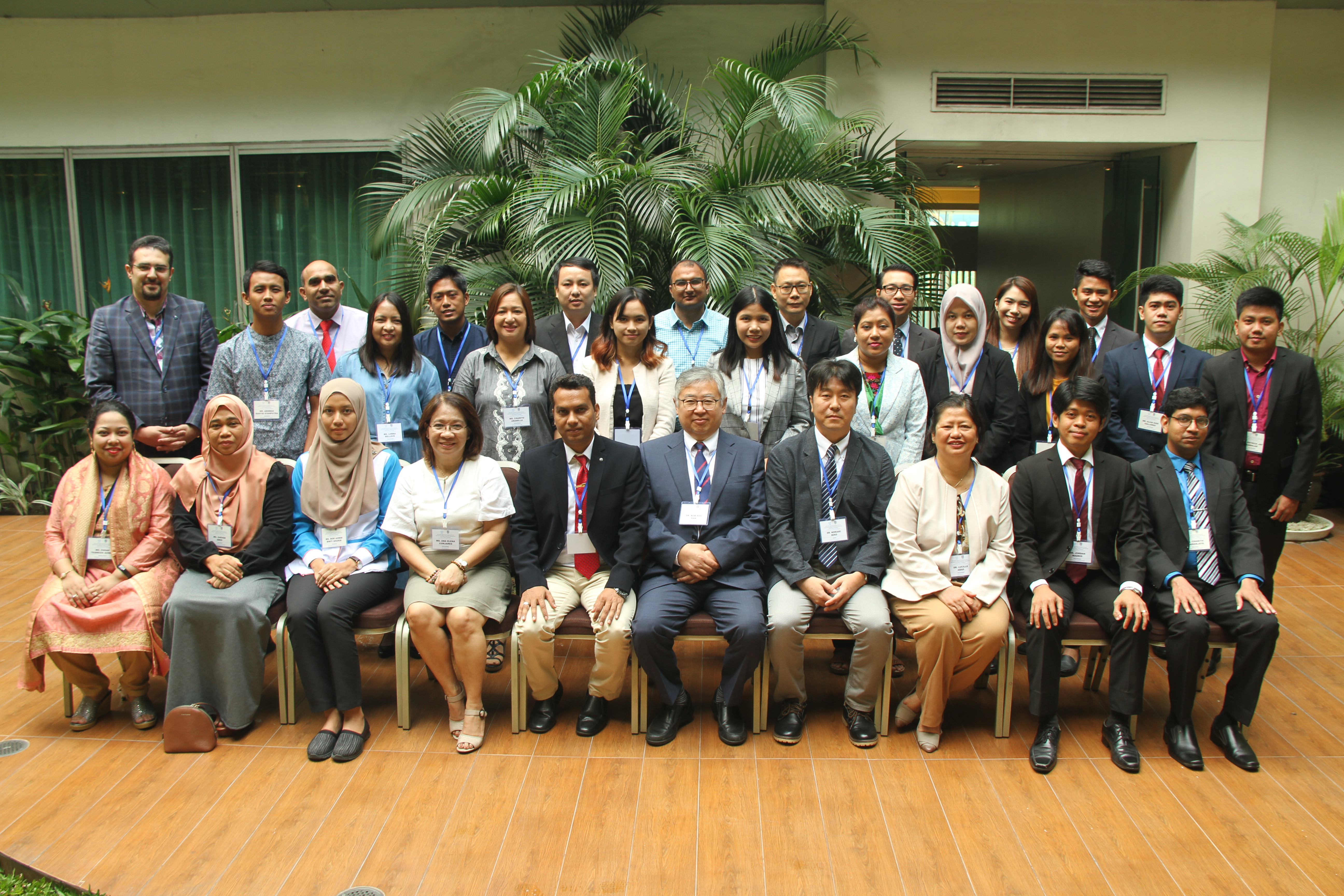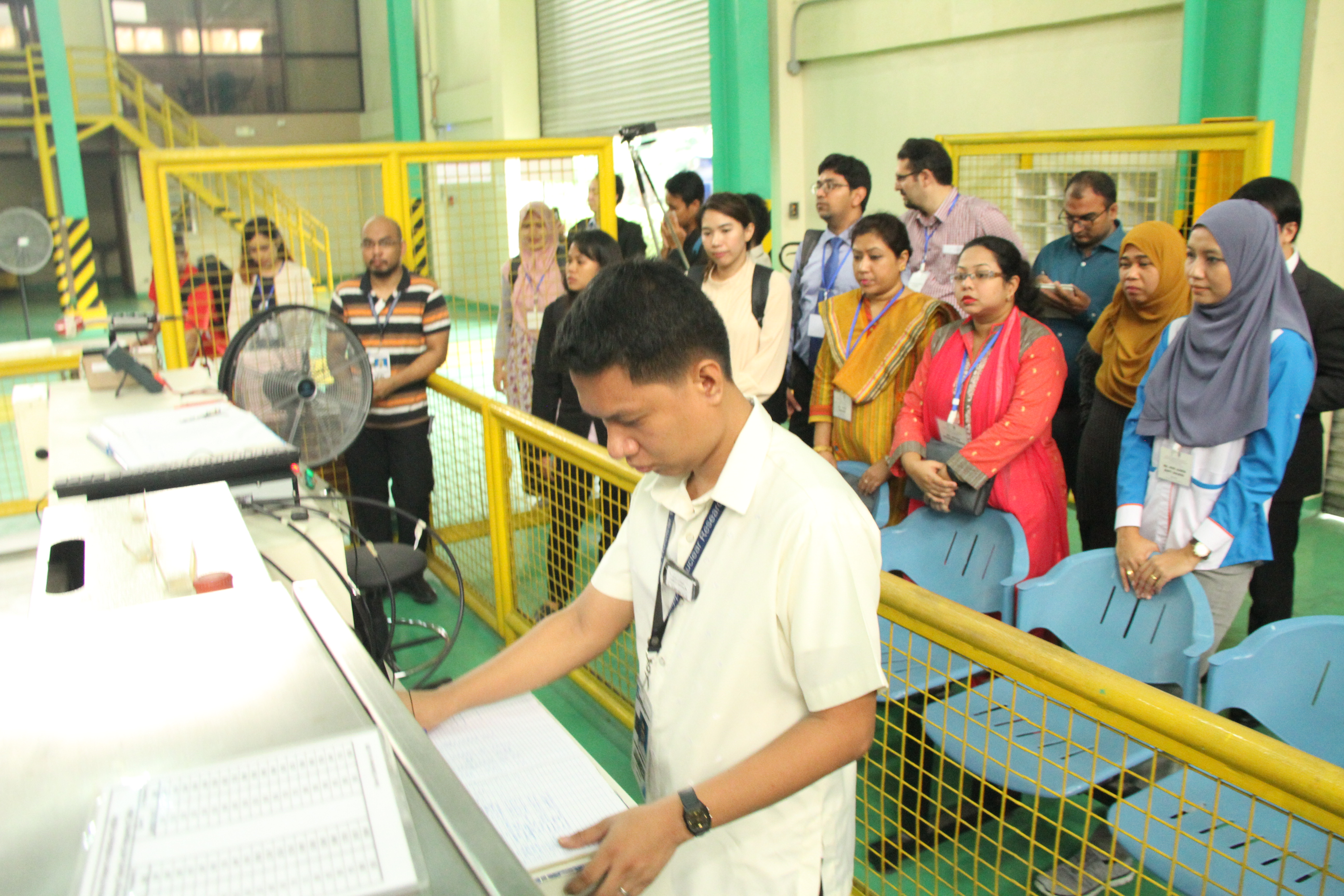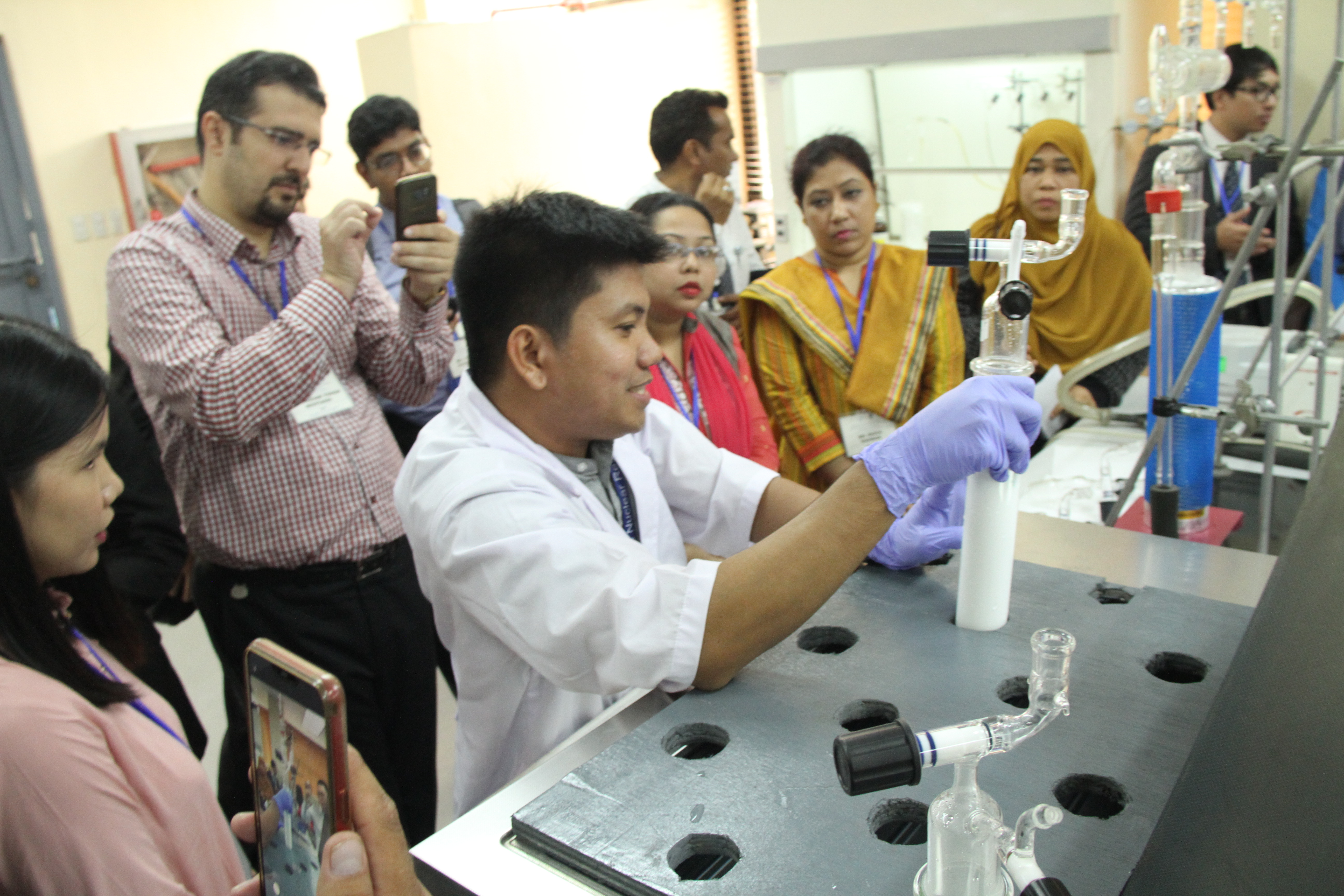PNRI Director Wins Award at 2019 PhilAAST Convention
- Details

PNRI Director Wins Gregorio Y. Zara Award at 2019 PhilAAST Convention
PNRI Director Dr. Carlo Arcilla (3rd from left) was recently awarded the Gregorio Y. Zara Award for Basic Research by the Philippine Association for the Advancement of Science and Technology (PhilAAST) during the 68th PhilAAST Annual Conventionon September 11, 2019 at the Hotel Jen Manila, Pasay City.
The award was given in recognition for his significant contributions in the field of geological sciences and for sharing his expertise that helped resolve sensitive issues on mineral resource development, water management and peaceful applications of nuclear energy in the Philippines.
An award-winning geology professor, Dr. Arcilla was previously the Director of the National Institute of Geological Sciences (NIGS) at the University of the Philippines (UP) Diliman, from 2007 to 2015. He served as amicus curiae to the Philippine Supreme Court for the first Writ of Kalikasan cases involving the Makati pipeline disaster in 2010, and was also called as an expert witness for the Philippines in the International Court of Arbitration in Washington, D.C.
Dr. Arcilla was appointed as PNRI Director in 2017. He is also involved in nuclear-related research for more than a decade, particularly in studies on nuclear waste disposal.
PNRI Irradiation Services Team Wins Presidential Lingkod Bayan Award
- Details
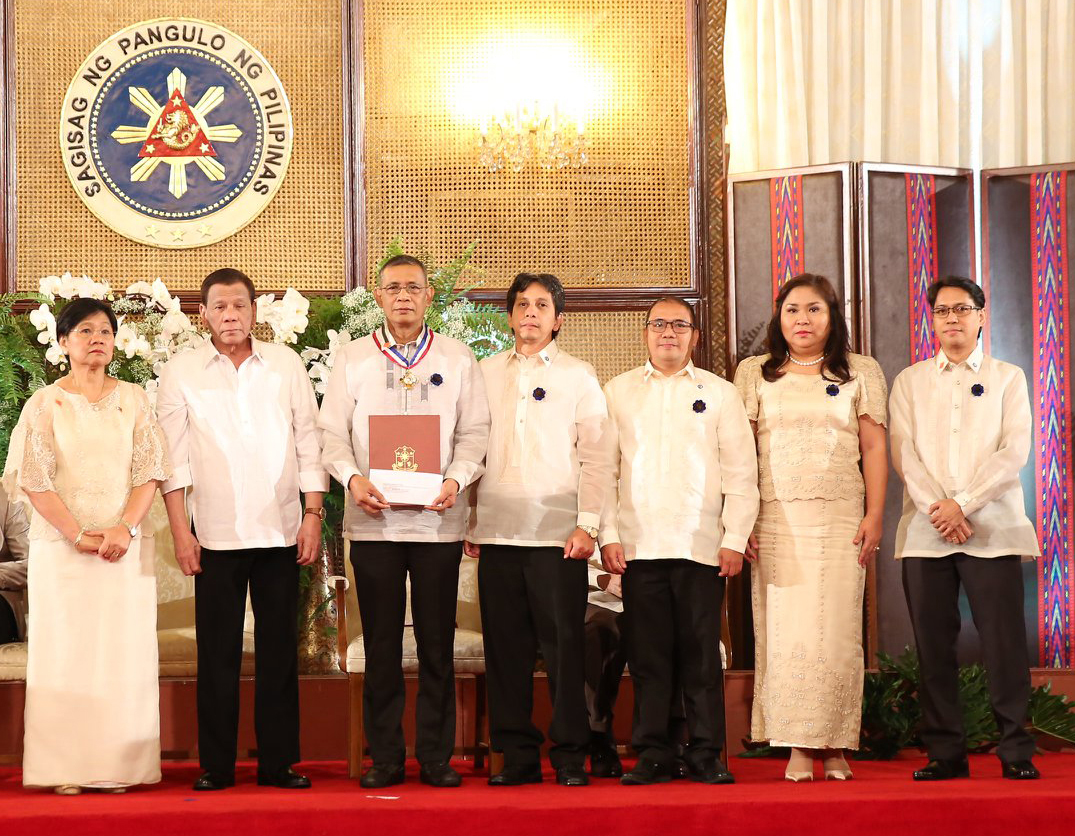
President Rodrigo Roa Duterte and CSC Commissioner Alicia dela Rosa-Bala presented the award to the PNRI Irradiation Services Team. The members of the Irradiation Services Team (from left, starting 3rd from left): Mr. Aurelio Maningas, Mr. Giuseppe Filam Dean, Mr. Franklin Pares, Ms. Haydee Solomon, and Mr. Geofrey Tranquilan.
PNRI Irradiation Services Team Wins Presidential Lingkod Bayan Award
Proving the quality of Filipino civil servants through nuclear science and technology, the Irradiation Services Team of the Department of Science and Technology - Philippine Nuclear Research Institute (DOST-PNRI) is one of the recipients of the Presidential Lingkod Bayan Award as part of the 2019 Search For Outstanding Government Workers by the Civil Service Commission (CSC).
No less than President Rodrigo Roa Duterte and CSC Commissioner Alicia dela Rosa-Bala presented the award to the PNRI Irradiation Services Team for their outstanding contribution to the country's nuclear research program, particularly in improving the overall operations and control of irradiation facilities at the Philippine Nuclear Research Institute, thereby generating savings in maintenance costs of the country's irradiation equipment used for food preservation, medical product sterilization and research.
The Presidential Lingkod Bayan Award is conferred for exceptional or extraordinary contributions resulting from an idea or performance that had nationwide impact on public interest, security and patrimony, whether in the form of a suggestion, an innovation or a superior accomplishment, according to the CSC.
The winners from PNRI are in charge of operating the Institute’s irradiation facilities, which are mainly used for radiation processing of various products such as food, medical equipment and raw materials, as well as for advanced research and development applications.
The Cobalt-60 Multipurpose Irradiation Facility is the first and currently the only facility of its kind in the country, established in 1989 and currently serving the needs of the commercial and industrial sectors.
Meanwhile, the Electron Beam Irradiation Facility, inaugurated in 2014, opens the doors to more advanced applications, with higher radiation doses and faster irradiation time. The facility is also currently being used to produce PNRI’s highly successful Carrageenan Plant Growth Promoter, which can increase rice yields by around 30% and is now available in the market.
IAEA Regional Training Course on Advanced Grafting of Polymeric Materials for Waste Water Treatment
- Details
PNRI officials, scientists and researchers with IAEA experts and participants from countries in the Asia-Pacific region during the opening ceremony on July 22 at Novotel Manila Araneta Center, Quezon City
The participants observe the operation of the Electron Beam Irradiation Facility and grafting procedures at the PNRI Chemistry Research Section.
IAEA Regional Training Course on Advanced Grafting of Polymeric Materials for Waste Water Treatment
Radiation can be used to modify materials and graft various polymers that can have advanced properties such as adsorbing various contaminants from water.
To maximize this technology, researchers from several countries in the Asia-Pacific Region trained in the Philippines on radiation grafting with experts from the International Atomic Energy Agency (IAEA) from July 22-26, 2019 in Quezon City.
Under IAEA Project RAS1023 on Developing and Upscaling of Radiation Grafted Materials for Water Treatment, the participating countries are developing advanced materials that can serve as adsorbents for waste water treatment.
Original Post: August 30
CSC Confers Scientist Rank to PNRI Researcher in Radiation Chemistry
- Details
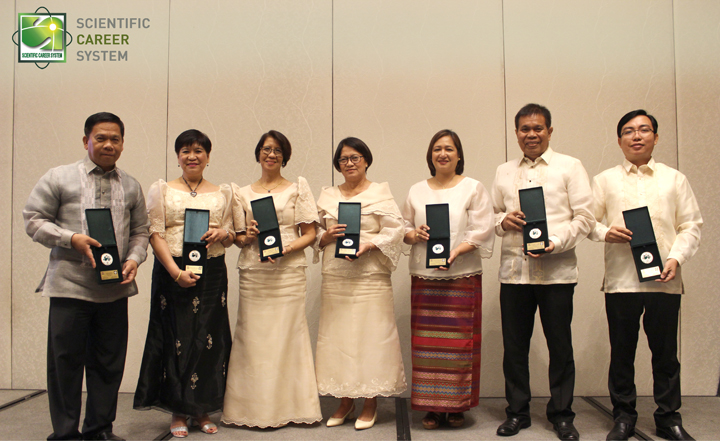
Ms. Charito Aranilla (3rd from right) was among the newest members of the Scientific Career System, with the rank of Scientist I, for her research on radiation chemistry and radiation processing technologies.
CSC Confers Scientist Rank to PNRI Researcher in Radiation Chemistry
The Department of Science and Technology - Philippine Nuclear Research Institute (DOST-PNRI) congratulates its very own Charito T. Aranilla of the Chemistry Research Section, who was among the researchers who were recently conferred the Scientist rank by the Civil Service Commission.
The rank was conferred for her significant researches in the fields of radiation chemistry and radiation processing, utilizing ionizing radiation like gamma radiation and electron beam to modify polymeric materials for various applications.
Aiming to support the career and recognition of scientists in the public service, the Scientific Career System was established through Executive Order 784 and Executive Order 901, and was further strengthened by Republic Act 8439, also known as the Magna Carta for Scientists, Engineers, Researchers and other S & T Personnel in the Government.
Entry in the Scientific Career System is both an honor and a challenge, with those selected having at least a master’s degree in the sciences, as well as significant outputs and contributions in relevant fields of applied and natural science.
These include major publications such as scientific articles in international journals, books and compendiums, development of inventions, discoveries, practical applications of research findings and the training of the next generation of researchers, among others.


























